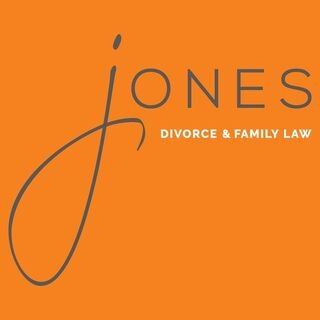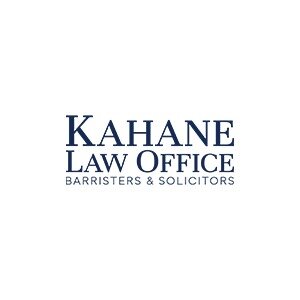Best Elder Abuse Law Lawyers in Calgary
Share your needs with us, get contacted by law firms.
Free. Takes 2 min.
List of the best lawyers in Calgary, Canada
About Elder Abuse Law in Calgary, Canada
Elder abuse law in Calgary, Canada, encompasses a range of legal protections and resources aimed at safeguarding seniors from acts of abuse, neglect, and exploitation. This area of law addresses physical, emotional, sexual, and financial abuse against older individuals, ensuring their rights and well-being are upheld. Calgary's legal framework works in conjunction with provincial and federal laws, offering a comprehensive approach to protecting the elderly. Lawyers specialising in elder abuse law can provide valuable guidance and assistance in navigating these complex legal matters.
Why You May Need a Lawyer
There are numerous situations where individuals may find the need for legal assistance in elder abuse law. Some common situations include:
- Suspected Abuse: If you suspect a senior is being abused in any capacity, legal counsel can help you understand your options and responsibilities.
- Financial Exploitation: Seniors who have been financially exploited require legal help to recover assets and prevent further exploitation.
- Guardianship Issues: Legal assistance is often needed when disputes arise over guardianship or power of attorney.
- Civil Remedies: Victims of elder abuse may seek compensation or restraining orders through civil litigation.
- Inheritance Disputes: Lawyers can assist with legal disputes involving inheritances or wills, especially if undue influence is suspected.
Local Laws Overview
Calgary's approach to elder abuse law involves several key aspects:
- The Adult Guardianship and Trusteeship Act: Provides for the appointment of a guardian or trustee for adults unable to make their own decisions.
- Protection for Persons in Care Act: Mandates reporting of abuse in provincially funded care settings and outlines investigation procedures.
- Victim Services: Offers support services for elder abuse victims, including legal advice and emotional support.
- Criminal Code of Canada: Includes provisions for charging and prosecuting individuals who commit crimes against seniors.
- Elder Abuse Strategy: Local initiatives and programs focused on the prevention and education of elder abuse.
Frequently Asked Questions
What constitutes elder abuse under the law in Calgary?
Elder abuse can take various forms, including physical, emotional, sexual, financial, and neglect, impacting an older adult's well-being, dignity, or autonomy.
How can I report suspected elder abuse?
Suspected elder abuse can be reported to local authorities, the police, or the Alberta Elder Abuse Awareness Council. Regulatory bodies in care environments are also obligated to investigate reported cases.
Can elder abuse be addressed through criminal charges?
Yes, specific instances of elder abuse, such as assault or theft, may be subject to criminal charges under the Criminal Code of Canada. Legal advice should be sought for proceedings.
What are the signs of financial elder abuse?
Signs include sudden bank account changes, unexplained asset transfers, abrupt changes in wills, and the presence of a new individual making financial decisions on behalf of the elder.
What role do healthcare professionals play in elder abuse cases?
Healthcare professionals have a duty to report any suspected cases of elder abuse they encounter in their practice, often acting as an integral part of the identification and reporting process.
Can an elder refuse help if they're being abused?
An elder with full decision-making capacity has the right to refuse help. However, if the elder is deemed not capable, a legal representative may intervene on their behalf.
What is the role of a guardian or trustee in elder abuse cases?
A guardian or trustee can make personal and financial decisions for the elder, helping protect them from potential abuse when they lack the capacity to do so themselves.
Is there a statute of limitations for reporting elder abuse?
While specific limitation periods may apply to civil cases, criminal cases like assault can be pursued without a limitation period. It is crucial to seek legal advice as soon as possible.
What should I do if I am experiencing elder abuse?
If you are experiencing elder abuse, it is vital to reach out for help immediately. You can contact local authorities, a trusted friend or family member, or legal services specializing in elder abuse.
Are there confidentiality considerations when reporting elder abuse?
Yes, reports can generally be made confidentially to protect the privacy of the individual involved. Legal professionals can offer guidance on maintaining confidentiality during the process.
Additional Resources
- Alberta Elder Abuse Awareness Council: Provides resources and education on elder abuse.
- Calgary Police Service: Offers assistance and advice for suspected elder abuse cases.
- The Office of the Public Guardian and Trustee: Supports individuals in appointing a guardian or trustee when necessary.
- Victim Services Unit: Provides support and counseling services to elder abuse victims.
- Alberta Seniors and Housing: Offers programs and services to support seniors' well-being and independence.
Next Steps
If you need legal assistance with elder abuse in Calgary, consider the following steps:
- Seek Immediate Help: Contact local authorities or hotlines if you are in an urgent situation.
- Document Evidence: Keep records of abuse instances, including dates, times, and descriptions, to support your case.
- Consult a Lawyer: Engage with a lawyer specialising in elder abuse to explore legal options and protect your rights.
- Utilize Support Services: Access support groups and counseling through local resources to help manage the emotional aspects of the situation.
- Stay Informed: Educate yourself on local laws and strategies regarding elder abuse for better understanding and preparation.
Lawzana helps you find the best lawyers and law firms in Calgary through a curated and pre-screened list of qualified legal professionals. Our platform offers rankings and detailed profiles of attorneys and law firms, allowing you to compare based on practice areas, including Elder Abuse Law, experience, and client feedback.
Each profile includes a description of the firm's areas of practice, client reviews, team members and partners, year of establishment, spoken languages, office locations, contact information, social media presence, and any published articles or resources. Most firms on our platform speak English and are experienced in both local and international legal matters.
Get a quote from top-rated law firms in Calgary, Canada — quickly, securely, and without unnecessary hassle.
Disclaimer:
The information provided on this page is for general informational purposes only and does not constitute legal advice. While we strive to ensure the accuracy and relevance of the content, legal information may change over time, and interpretations of the law can vary. You should always consult with a qualified legal professional for advice specific to your situation.
We disclaim all liability for actions taken or not taken based on the content of this page. If you believe any information is incorrect or outdated, please contact us, and we will review and update it where appropriate.














